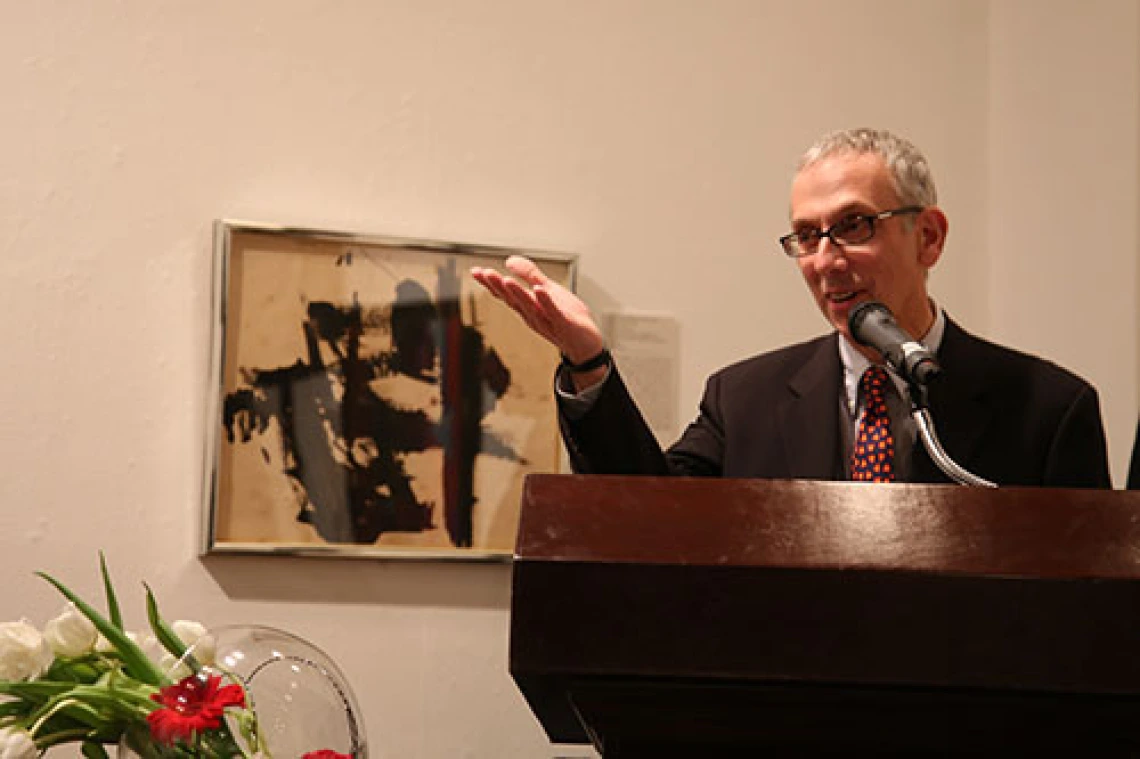UA Innovation Hub Headed by Slepian to Accelerate Translational Medical Research

Tucson, Ariz. – The University of Arizona has announced the creation of a center focused on accelerating the development and commercialization of translational biomedical technologies.
The Arizona Center for Accelerated Biomedical Innovation, or ACABI, is a place where investigators can work with other experienced innovators to flesh out their ideas, consider next steps in the development of their technologies, and access scientific and business resources to move those ideas forward. The center also will help to create connections between emerging research and market needs, thus directing research more rapidly toward solutions such as new drug therapies, medical interventions and diagnostic technologies.
As described in the plan for the new center, ACABI will focus on unmet needs in health care, well care and individual well-being, identifying how science, technology and other discoveries can be employed to meet those needs. Core to the center’s operating philosophy are the principles of inventiveness and synthesis, as work will “creatively mix diverse elements to yield a range of novel solutions,” the plan says.
The center will be headed by Dr. Marvin Slepian, a cardiologist with the UA Sarver Heart Center.
"ACABI is a 'creativity engine' that will fuel translational research at the UA," Slepian said. "It will align emerging major drivers that will produce the next generation of inventions, commercial opportunities and clinical impact that are going to be transformational for the University."
Slepian is "an experienced biomedical innovator and successful entrepreneur," said David Allen, vice president of Tech Launch Arizona, the UA's commercialization unit.
"He represents a nexus of many of the UA’s emerging strengths, including biomedical engineering, translational medicine and technology commercialization," Allen said. "ACABI will collaborate closely with TLA, as the center will be maturing inventions and readying them for introduction into the commercial marketplace."
Other University leaders — from the Office for Research and Discovery to the Arizona Health Sciences Center to the College of Engineering — expressed support for the new center and its mission.
"This center enables the practical and important impact that research can have on society," said Kimberly Andrews Espy, senior vice president of research at the UA. "Our researchers continue to come up with innovative and amazing ideas and technologies. The translation and commercialization assistance that ACABI will provide realizes the next step in the value chain that moves the products of University research into the marketplace, where we all can reap the benefits."
Dr. Joe G.N. "Skip" Garcia, UA senior vice president for health sciences and interim dean of the UA College of Medicine – Tucson, saw potential benefits to patient care and research.
"Dr. Slepian’s strong experience in developing biotechnology to directly improve patient care brings much-needed expertise that will accelerate translational research activity across the UA campus," Garcia said. "ACABI is key not only to innovative approaches that will provide ‘tomorrow’s medicine today’ for patients in Arizona, the Southwest and the nation, but also is integral to our efforts at the Arizona Health Sciences Center to expedite research consistent with the UA’s focus on innovation and creating impact through translational technologies.”
Jeffrey Goldberg, dean of the College of Engineering, looks forward to seeing ACABI engage students as well as faculty in the development of innovative technologies.
"Dr. Slepian and ACABI will help faculty and students understand key needs in medical care and its delivery," Goldberg said, "and will help us develop technologies to match those needs."
Professor Arthur Gmitro, head of the Department of Biomedical Engineering, sees ACABI as a key partner for the process of invention and delivery of new health care devices and technologies.
"Dr. Slepian is someone who sees the whole picture, from a medical need to solution concept, demonstration and ultimately the commercialization of novel biomedical technology," Gmitro said. "I foresee ACABI under his leadership assisting BME faculty and students in being more creative and more focused on meeting critical health-care needs."
Along with being an experienced entrepreneur-inventor, Slepian is a professor of medicine (cardiology) and associate department head of biomedical engineering in the UA College of Engineering, director of interventional cardiology at the UA Medical Center(link is external), and a McGuire Scholar in the Eller College of Management.
His lab has developed a number of therapeutic solutions based on polymeric biomaterials, such as drug-eluting stent technologies, stent coatings, and cardiovascular prosthetic devices, including the total artificial heart. The latter has been brought to market via SynCardia Systems, a company he co-founded.
He has commercialized a number of inventions and founded several other medical device companies.

